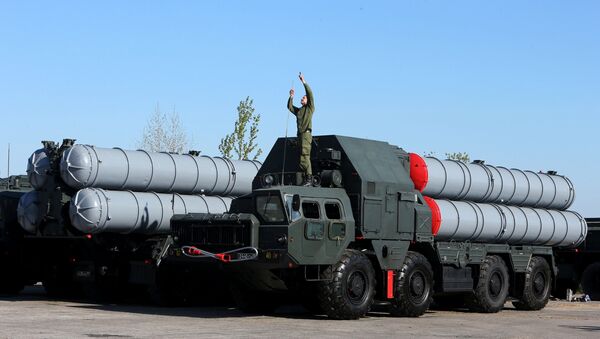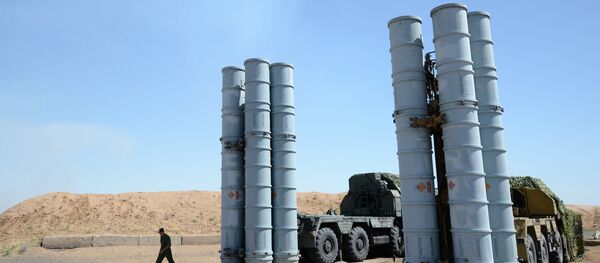MOSCOW (Sputnik) — The delivery of S-300 missile defense systems to Iran does not fall under the UN Security Council’s sanctions so Moscow has taken a unilateral decision to work with its partners to lift sanctions on the whole, Russian President Vladimir Putin said Thursday.
“If someone’s afraid that we began lifting sanctions, then obviously our colleagues don’t know that the UN sanctions list doesn’t include the delivery of these systems. We froze the fulfillment of this contract unilaterally and now, after there’s been positive progress on the Iranian nuclear path, we don’t see any reason to retain the ban.”
Putin added that Russia would honor the existing UN sanctions list.
“Our companies have produced this equipment and it’s expensive. One costs just under $1 billion, or $900 million. No one has paid our companies for this,” he said.
On Monday, Russian president signed a decree lifting a ban on the sales of S-300 air defense systems to Tehran, thus allowing Moscow and Tehran to implement the contract on the delivery of five Russian S-300 PMU-1 battalions they signed in 2007.
The deal was suspended in September 2010 by then-President Dmitry Medvedev in light of the UN Security Council Resolution 1929, which banned supplying conventional weapons to Iran.
Iran is Demonstrating Extreme Flexibility and Clear Desire to Reach Compromises on its Nuclear Energy Program.
“Today, [our] Iranian partners are demonstrating great flexibility and clear desire to reach compromises on the Iranian nuclear program,” Putin said.
The international community has long accused Iran of developing nuclear weapons under the guise of a civilian program, a claim which Tehran has repeatedly denied.
Under the interim agreement, Iran has agreed, among other provisions, to reduce the number of centrifuges and not to build any new uranium enrichment facilities for a period of at least 15 years. The deal also stipulates a gradual phasing out of sanctions imposed against Tehran amid allegations it was developing a nuclear weapon.
The deadline for the final comprehensive agreement is set for June 30.
Sales of S-300 Missile Systems Pose No Threat for Israeli Security, as S-300 Can Be Used Solely for Defense Purposes.
“This [S-300 sales to Iran] poses absolutely no threat to Israel, this is a purely defensive weapon. Moreover, we think that with regard to latest events in the region, especially in Yemen, such deals can become a sort of constraining factor.”
The deal between Russia and Iran on the delivery of five S-300 PMU-1 systems, worth $800 million, was agreed on in 2007. In 2010, then-President Dmitry Medvedev suspended the agreement after the UN Security Council introduced an embargo on arms deliveries to Iran over concerns it was developing nuclear weapons.
The prospect of Iran receiving powerful S-300 surface-to-air missiles from Russia alarmed its long-time rival Israel.
Israeli Prime Minister Benjamin Netanyahu called the Russian leader on Tuesday to warn that this move would only increase Iran's belligerence and undermine stability in the Middle East. Netanyahu said Jerusalem could start sending weapons to war-torn Ukraine in response.
Moscow Always Studies Regional Situation Before Selling Weapons
Putin said Russia shows a great deal of caution while signing defense contracts with other states and always takes situation in the region into account.
“While supplying our weapons to foreign markets we always take into account situation in this or that region. Particularly in the Middle East… By the way, we are not the biggest arms supplier to the Middle East, the US sells more weapons to this region.”
The Russian president added that Russia had to suspend some defense contract in the past amid concerns that an arms delivery may destabilize situation.





